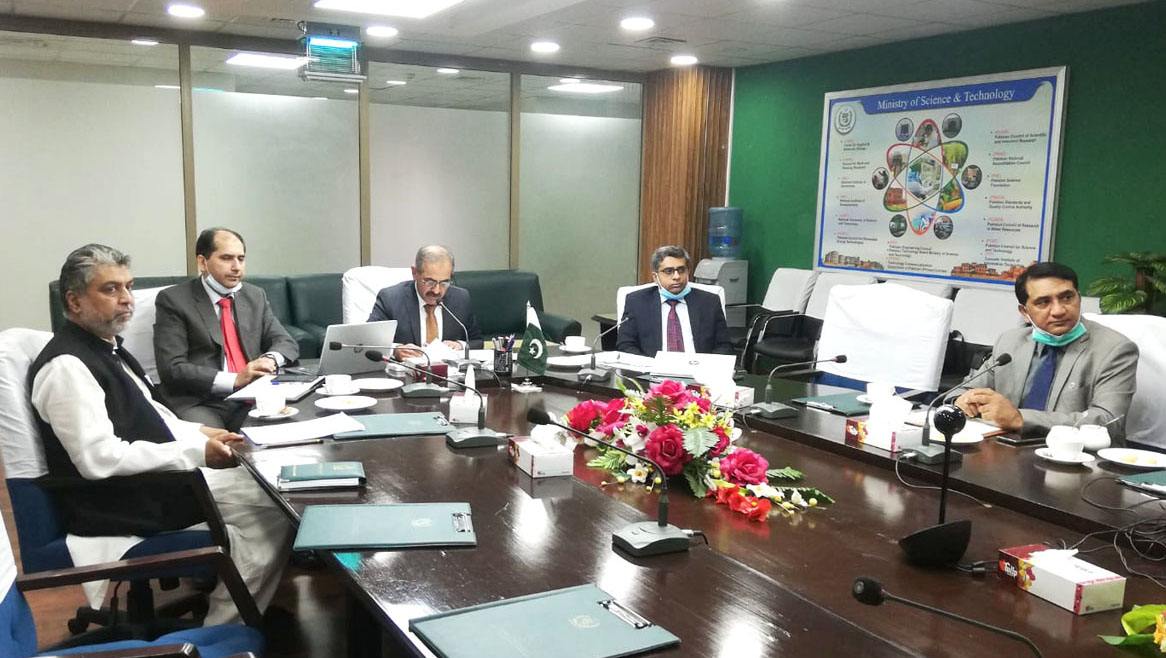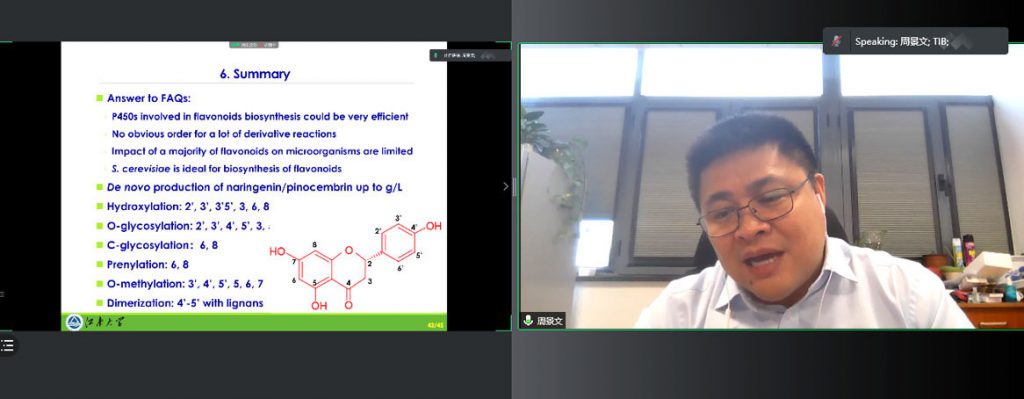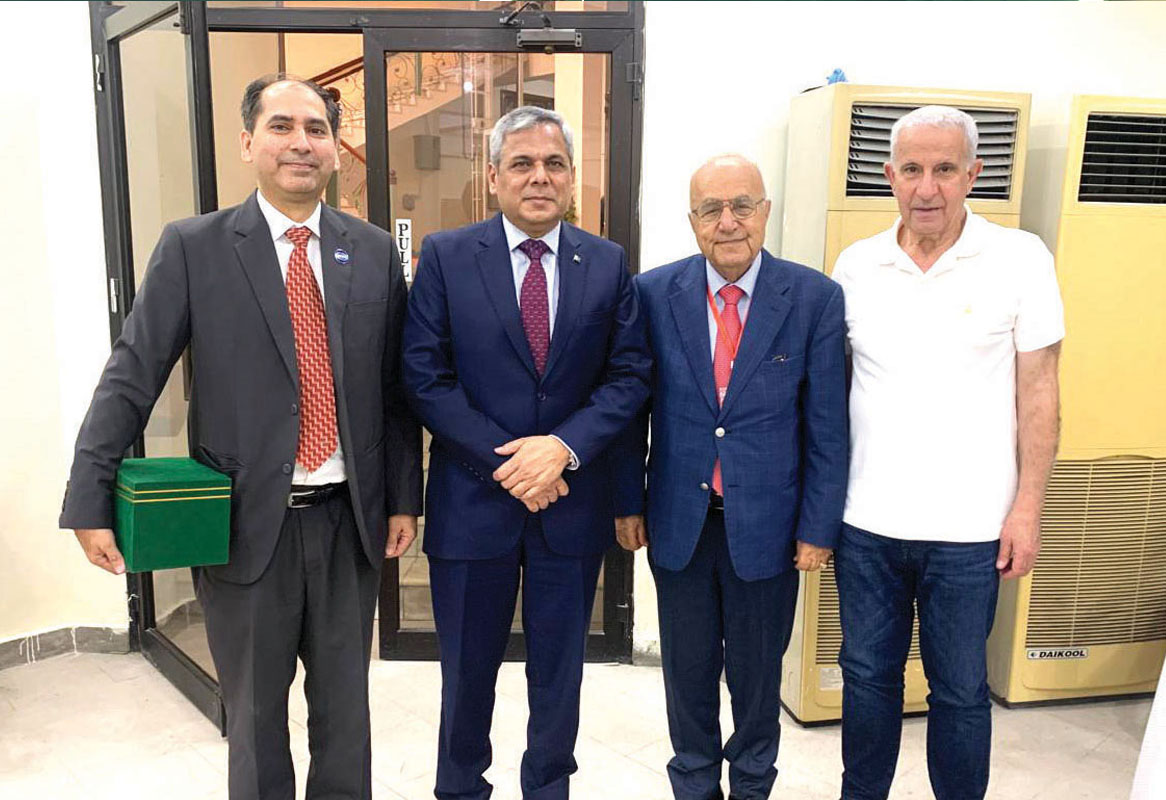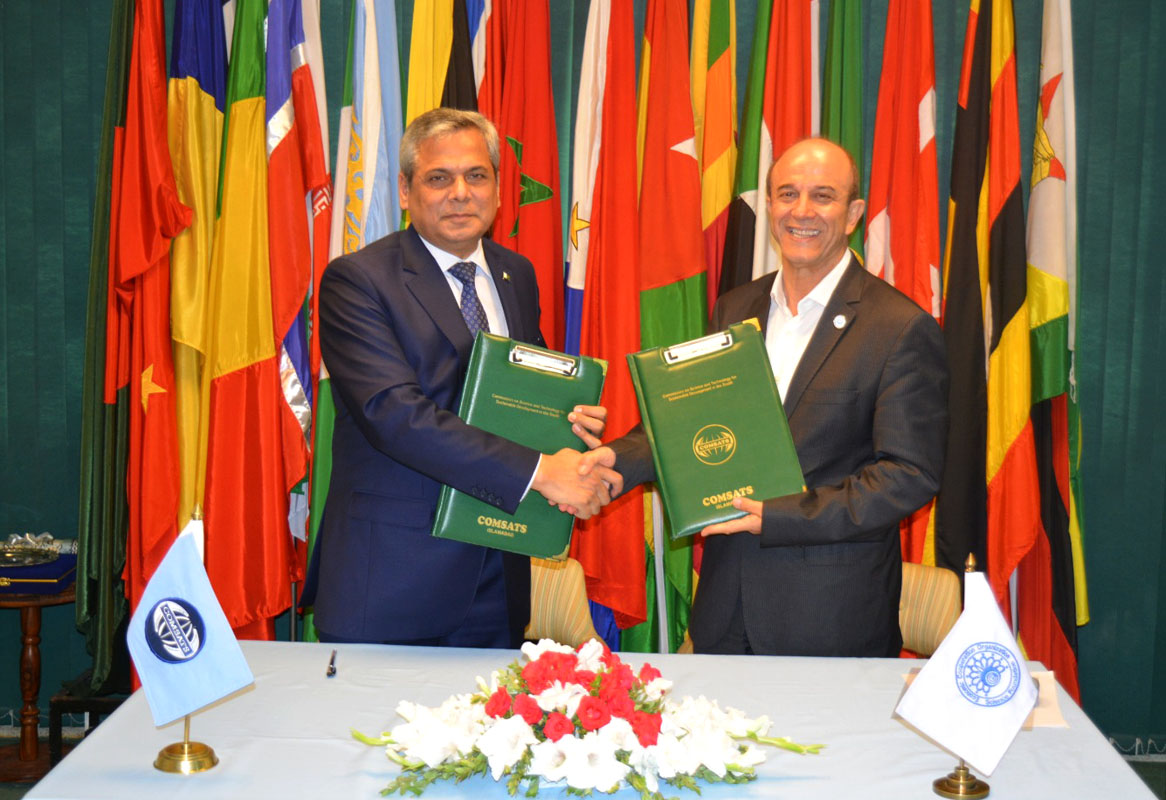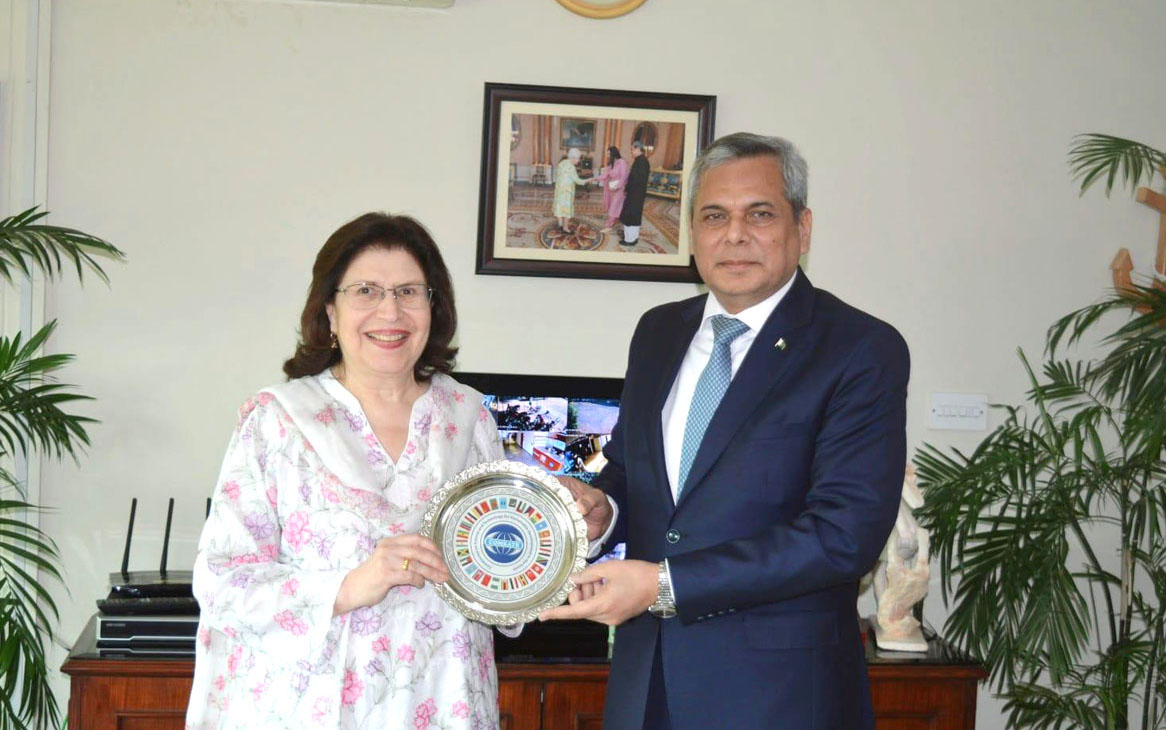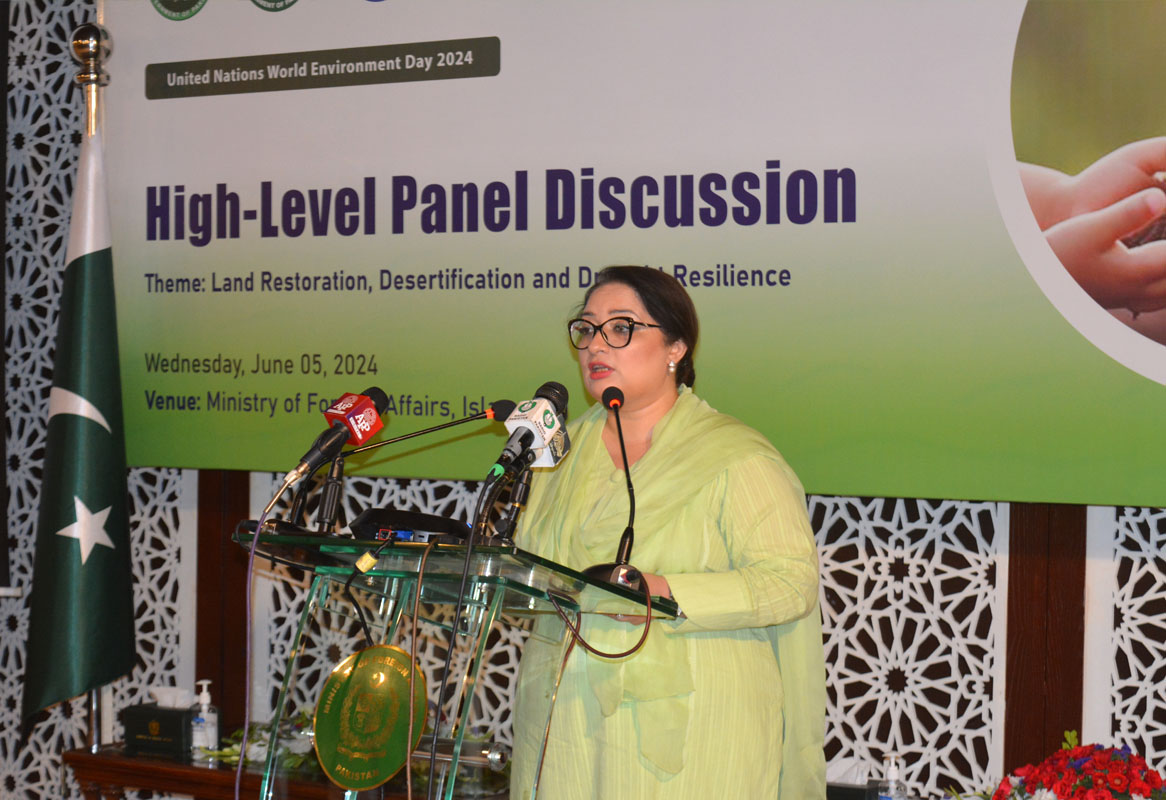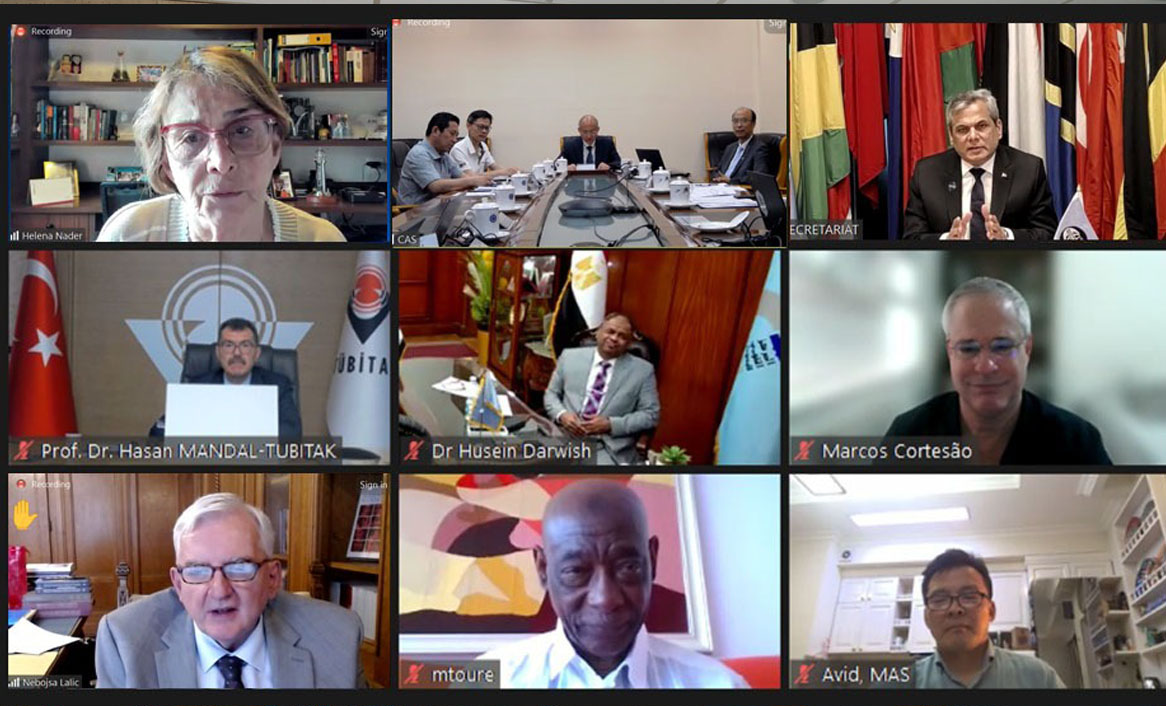COMSATS in collaboration with its Centre of Excellence in China, the Tianjin Institute of Industrial Biotechnology (TIB), organized a virtual workshop on ‘Technical Innovation in Traditional Plant Medicine’, from the platform of COMSATS Joint Centre for Industrial Biotechnology (CCIB), on 13th October 2021. The objective of the event was to provide a platform for interaction, knowledge sharing, and expertise exchange in the field of biomedicine and synthetic biology, with a purview to contribute towards ‘Good Health and Well-Being’, Sustainable Development Goal 3 of the UN Global Agenda 2030.
With physical and virtual participation (at CCIB/TIB and COMSATS Secretariat) of ove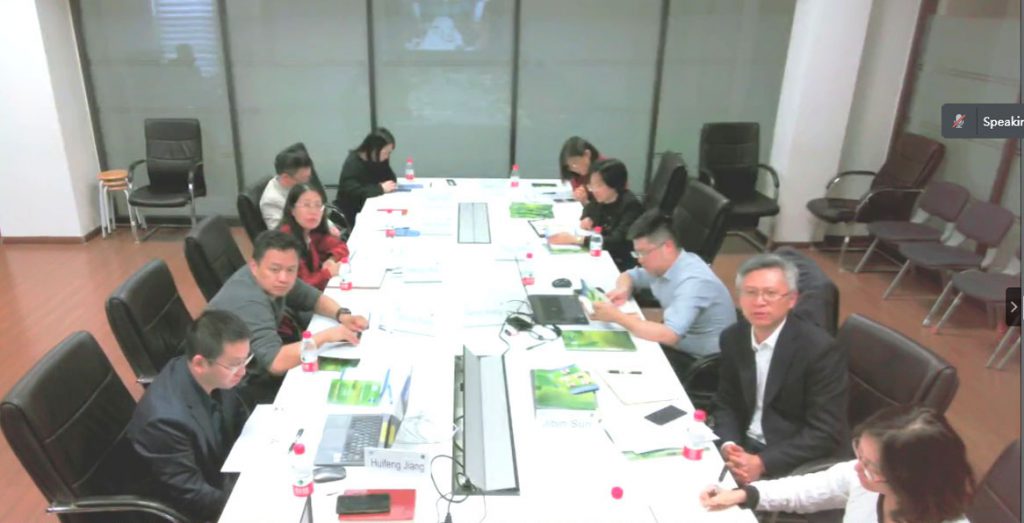 r 60 scientists/officials belonging to 13 Member States of COMSATS, including Bangladesh, China, Egypt, Ghana, Iran, Jamaica, Kazakhstan, Nigeria, Pakistan, Sri Lanka, Sudan, Tanzania, and Turkey, the webinar covered talks by experts from China, Kazakhstan, and Pakistan.
r 60 scientists/officials belonging to 13 Member States of COMSATS, including Bangladesh, China, Egypt, Ghana, Iran, Jamaica, Kazakhstan, Nigeria, Pakistan, Sri Lanka, Sudan, Tanzania, and Turkey, the webinar covered talks by experts from China, Kazakhstan, and Pakistan.
During the inaugural, Prof. Dr. Jibin Sun, Director of CCIB and Deputy Director-General of TIB, welcomed the subject experts and participants, and thanked COMSATS Secretariat for collaborating for holding this workshop from the platform of Joint R&D Group on Biomedicine under CCIB. Highlighting the significance of the workshop’s theme, Prof. Sun stated that medicinal plants are one of the oldest means for cure, prevention and mitigation of diseases. Many natural products from plants, he added, provide great pharmacological benefits and are major sources for discovery of new drugs. He recounted that medicinal plants played a significant role in the treatment of COVID-19.
In his opening remarks, Executive Director COMSATS, Dr. Akhtar Nazir (who is also the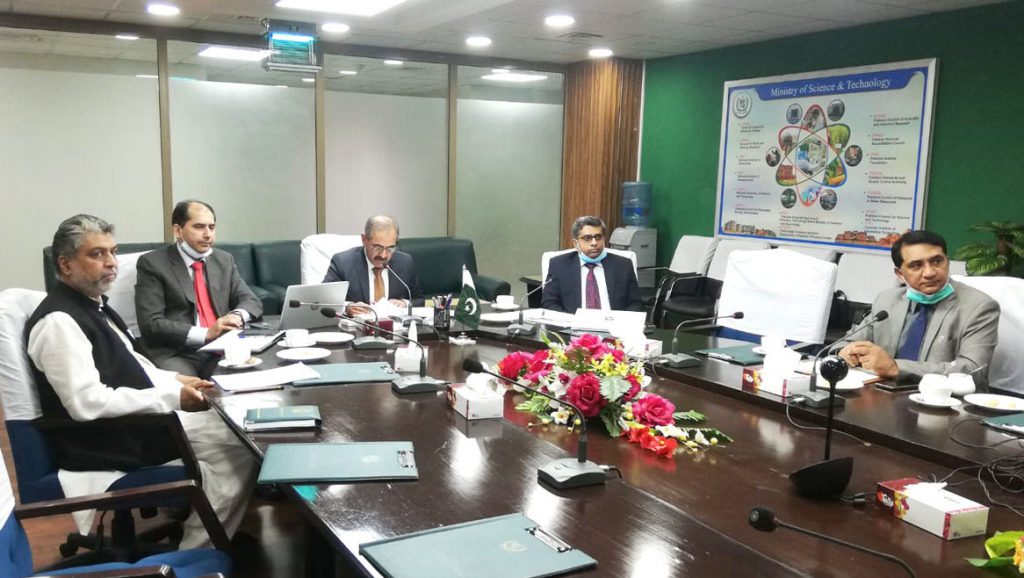 Federal Secretary, Ministry of Science and Technology, Government of Pakistan), thanked the participants and experts for their online presence. Dr. Nazir stated that traditional medicine is being used for centuries and many countries particularly in South-East Asia, Middle East, and Africa have their own indigenous healthcare systems, mostly based on herbs and medicinal plants. Citing World Health Organization (WHO) data, he stated that around 80% of the world population uses herbal medicine for primary healthcare needs due to their health benefits with minimum adverse effects. He considered the sustainable supply of high-quality herbs to be among the greatest challenges of the health sector, and opined that biotechnology has a high potential to help deal with raw material shortage problems and finding cure for new emerging diseases of complex nature. He noted that COVID-19 pandemic has resulted in an unprecedented health and economic crises worldwide, and it is a matter of great urgency to reflect upon the situation and enhance global cooperation and support in the fields of science and technology, particularly biotechnology and traditional plant medicine for combating COVID-19 and such outbreaks in the future. He stated that COMSATS is keen to collaborate with the institutions having similar mandates to achieve these common objectives.
Federal Secretary, Ministry of Science and Technology, Government of Pakistan), thanked the participants and experts for their online presence. Dr. Nazir stated that traditional medicine is being used for centuries and many countries particularly in South-East Asia, Middle East, and Africa have their own indigenous healthcare systems, mostly based on herbs and medicinal plants. Citing World Health Organization (WHO) data, he stated that around 80% of the world population uses herbal medicine for primary healthcare needs due to their health benefits with minimum adverse effects. He considered the sustainable supply of high-quality herbs to be among the greatest challenges of the health sector, and opined that biotechnology has a high potential to help deal with raw material shortage problems and finding cure for new emerging diseases of complex nature. He noted that COVID-19 pandemic has resulted in an unprecedented health and economic crises worldwide, and it is a matter of great urgency to reflect upon the situation and enhance global cooperation and support in the fields of science and technology, particularly biotechnology and traditional plant medicine for combating COVID-19 and such outbreaks in the future. He stated that COMSATS is keen to collaborate with the institutions having similar mandates to achieve these common objectives.
During his keynote speech, titled “Traditional Chinese and Unani Medicine – Nexus for 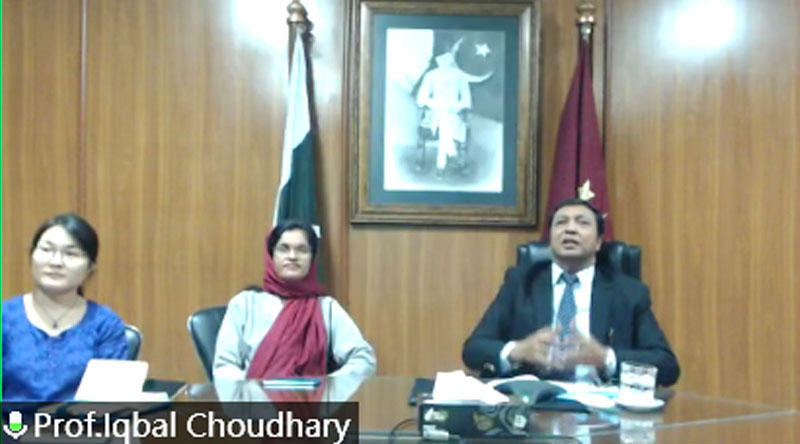 Human Beings”, Prof. M. Iqbal Choudhary, Director International Center for Chemical and Biological Sciences (ICCBS), delineated the widening gap in the healthcare systems of developed and developing countries, including health disparities, emergence of new diseases, innovation decline, health inequities, and system complexities. He shed light on the current status and significance of Unani system of medicine and traditional Chinese Uyghur medicine, which are being used in many countries. Some major challenges in herbal medicine as highlighted by Prof. Iqbal included: know-how gap; inconsistency; lack of understanding of the biomarkers; chemical vs bioactivity standardization issues; and lack of credible clinical evidence. He recommended following measures for strengthening traditional medicine sector: (i) documentation and compilation of Pharmacopia to serve as an important resource for government agencies, scientists, industry, practitioners, and patients; (ii) development and networking of human resource related to traditional medicine; and (iii) registration and marketing of traditional medicines.
Human Beings”, Prof. M. Iqbal Choudhary, Director International Center for Chemical and Biological Sciences (ICCBS), delineated the widening gap in the healthcare systems of developed and developing countries, including health disparities, emergence of new diseases, innovation decline, health inequities, and system complexities. He shed light on the current status and significance of Unani system of medicine and traditional Chinese Uyghur medicine, which are being used in many countries. Some major challenges in herbal medicine as highlighted by Prof. Iqbal included: know-how gap; inconsistency; lack of understanding of the biomarkers; chemical vs bioactivity standardization issues; and lack of credible clinical evidence. He recommended following measures for strengthening traditional medicine sector: (i) documentation and compilation of Pharmacopia to serve as an important resource for government agencies, scientists, industry, practitioners, and patients; (ii) development and networking of human resource related to traditional medicine; and (iii) registration and marketing of traditional medicines.
Discussing the phytochemical investigation of medicinal plants, Prof. Janar Jenis, Director of the Re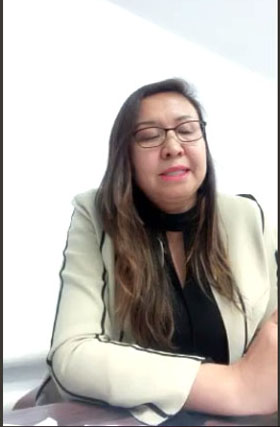 search Center for Medicinal Plants of Al-Farabi Kazakh National University (KazNU), Kazakhstan, noted that Kazakh traditional medicinal classic work was written in 1473, which educates on human body’s anatomy; physiology and pathology; diagnosis and treatment; immunity prevention, care, and food; pharmacology, etc. She informed about the work being done by the research centre for medicinal plants at Al-Farabi KazNU and touched upon medicinal plant resources in Kazakhstan.
search Center for Medicinal Plants of Al-Farabi Kazakh National University (KazNU), Kazakhstan, noted that Kazakh traditional medicinal classic work was written in 1473, which educates on human body’s anatomy; physiology and pathology; diagnosis and treatment; immunity prevention, care, and food; pharmacology, etc. She informed about the work being done by the research centre for medicinal plants at Al-Farabi KazNU and touched upon medicinal plant resources in Kazakhstan.
Prof. Meng Wang, TIB from China, highlighted the importance of the discovery of bioactive tri-terpenoids biosynthetic pathway of mushrooms. He informed that Ganoderma lucidum is one of the famous traditional mushrooms in East Asia and occupies the large market in healthcare industry. He shed light on biosynthesis pathways of Genoderic Acids as well as highlighted efforts being made for its improvement.
Prof. Huifeng Jiang, TIB, China, in his presentation, underscored the functions of plant natural products and informed that over 85% patients of the COVID-19 were cured by traditional Chinese medicinal plants. He covered various topics related to traditional medicinal plants, including: biosynthesis of natural products; genome sequencing in plants; decoding taxol biosynthesis; coexpresional analysis of taxol biosynthesis genes; diosgenin and its synthetic pathways; and biological activity assay of polydatin. He also talked about the potential collaboration in the field of traditional medicine through Belt & Road Initiative. He hoped that by utilizing the platform of CCIB, more of such events would be organized, and research fellowships and training programs would be scheduled.
Prof. Jingwen Zhou, Jiangnan University, China, in his presentation, titled ‘Towards the Customized Production of Flavonoids in Microorganisms’, discussed gene and pathway mining targeting the cellular optimization of microorganisms to produce flavonoids and its biotransform into high value products through sequential enzymatic activities.
After technical presentations, discussions took place between participants and subject experts during which emphasis was laid on creating linkages and synergies to benefit from the technical offers made at the workshop. Dr. Muhammad Ali from COMSATS University Islamabad (CUI), Pakistan, suggested seeking funding for joint projects from international donors on narrowed down research topics. He stressed the need for exchange of samples; incorporation of more advance techniques; and organization of seminars on regular bases. On the occasion, Prof. Maliheh Safavi from the Iranian Research Organization for Science and Technology (IROST), Iran, offered collaboration in areas of new biotech compounds from natural resources. Prof. Farzana Shaheen from ICCBS, Pakistan, also suggested documentation of the traditional medicine; organization of more of such events for exchange of information; and defining of effective funding mechanisms.
During the brief closing session, Mr. Farhan Ansari, Sr. Assistant Director (Programmes), COMSATS, thanked the speakers and participants of the event. He extended gratitude to Director of CCIB and coordinators of its Joint R&D Group on Biomedicine for organizing this important event, which he hoped would result in the initiation of mutually beneficial R&D cooperation and technology-transfer arrangements. He thanked TIB-China for its willingness to share the technological resources and expertise with other member countries in the vital field of industrial biotechnology through CCIB.
In his closing remarks, Prof. Sun thanked all the speakers and considered the workshop a good start for mutual learning and understanding, as well as a solid foundation for future collaboration. He invited relevant scientists belonging to COMSATS member countries to join the Joint R&D Groups of CCIB, and also invited collaborative proposals that could be supported by CCIB. He also announced that TIB will be hosting the second International Training Course on Industrial Synthetic Biotechnology (online event) during December 2021, in which he invited strong participation from COMSATS member countries.

